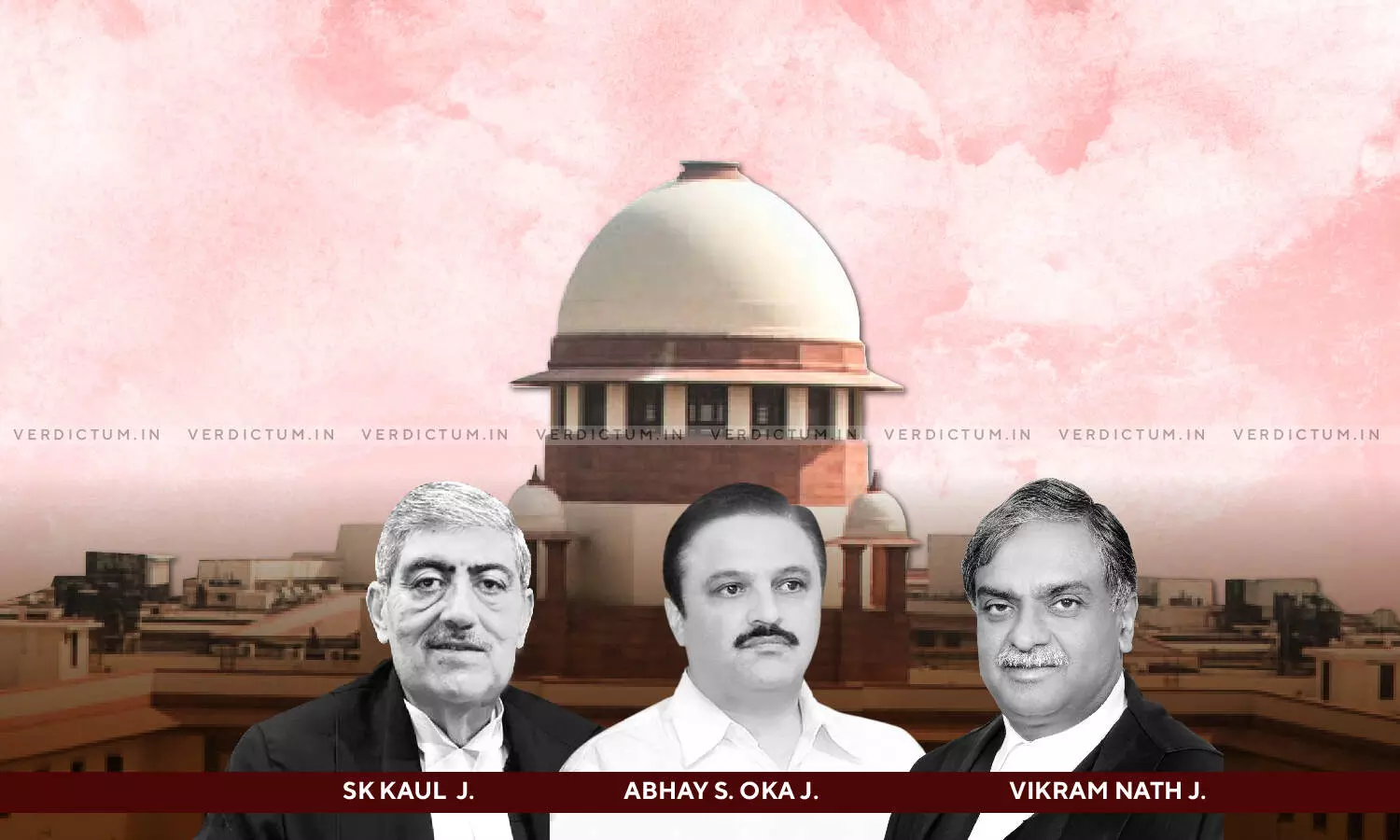
Battering Two Sleeping People Beyond Recognition- SC Imposes Fixed Term Sentence Of 30 Years On Murder Convicts
 |
|In a murder case, the Supreme Court has imposed a fixed term sentence of 30 years on the convicts who killed an aged couple while they were sleeping after robbing their house.
The Bench of Justice SK Kaul, Justice Abhay S. Oka and Justice Vikram Nath was hearing a plea of the State of Haryana, and the complainant on the quantum of sentence awarded to the murder convicts. The Trial Court had awarded the death sentence while the High Court commuted the death sentence to a life sentence.
In this case, the brutal crime of murder was committed by the trusted employees of an aged couple for the greed of money. Using a hammer and a tava the faces of the couple were disfigured while they were asleep.
The Supreme Court noted that the issue of the sentence to be imposed, once the conviction is under Section 302 IPC, option is limited. It has to be death or life.
Further, in this context, the Bench continued to add, "The third option is also available where at times the court looking to the scenario does not impose the death sentence but gives conviction whereby the accused has to serve at least for a fixed term. This fixed term conviction can only be by the High Court or this Court and not by the trial Court [Union of India vs. Sriharan, (2016) 7 SCC 1.]"
The Bench was also informed of the fact that after the conviction, the convicts endeavored to escape out of the prison by digging a tunnel but were caught and on trial were convicted under Sections 224 and 120-B IPC.
The Court disagreed with the contention of the Counsel of the accused who was engaged by the Supreme Court Legal Services Committee that the two accused were aged 22 and 24 years at the time of commission of the crime and were young people. They had already served fifteen years and have a chance to be rehabilitated in the society, therefore, the Court should not interfere with aspect of sentence and the crime should be treated as one which receives the normal sentence under Section 302 IPC.
However, the Bench agreed with the contention of the Counsel for the State and the Complainant on the aspect of brutality of the crime and held, "The aspects which weighed with us are that it was a pre-planned murder for gain and greed by somebody who was in a position of trust with the family. The two victims were aged people who engaged one of the convicts to look after them and were being paid appropriate emoluments. It is nobody's case that Anand Kindo was mal-treated or ill-treated by them and was not looked after in the house."
Furthermore, the Court also observed, "At an advanced stage in such health respect, there is always an element of trust and faith in the person by a person who employs them as well as the family members. Work takes other family members elsewhere and with the joint family system having broken down, the role of such trusted help becomes even more significant. It is also the significance of the society where a wrong signal goes if a trusted person breaches that trust to kill the person who had employed them in such a gruesome manner."
The Court held, "Battering two sleeping people beyond recognition who imposed trust in their employee certainly calls for something more than merely a life sentence under Section 302, IPC, even if death sentence is not to be imposed."
Thus, the Bench held that it would be appropriate to impose a fixed term sentence of thirty years.
Cause Title - The State of Haryana v. Anand Kindo & Anr, etc.